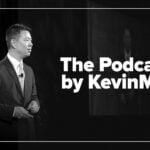Imagine a family physician who works 12-hour days packed with complex cases and endless paperwork. They may skip meals, miss their child’s recital, and stay late to finish charting. Patient care feels rushed, and the physician begins to feel emotionally numb and irritable. Driving home exhausted, the doctor wonders if medicine was the right career choice! A physician’s role is considered a calling, and when it starts to feel like “just a job,” signs of distress can start to creep in.
Physicians chronically have confronted stress stemming from long hours, high-stakes decisions, and emotional labor. Increased administrative burden, poor work-life equilibrium, and decreased access to support and autonomy trigger emotional exhaustion. Without active self-care, this stress contributes to burnout, health decline, and even affects lifespan.
Park and McElveen’s 2025 review in The American Surgeon states, “A structured self-care approach, prioritizing sleep, followed by nutrition and exercise, effectively reduces stress among surgeons.”
Here are some strategies that physicians may consider from the three major lifestyle medicine pillars:
Prioritizing sleep: the foundation of resilience
Sleep deprivation disrupts cortisol and insulin regulation, amplifying fatigue, mood disturbances, and metabolic dysfunction.
- Consistent sleep–wake schedules, even on off-duty days, for better circadian alignment.
- Sleep hygiene: limit caffeine after early afternoon or early in the shift for an overnight schedule, a 20-minute wind-down ritual before bed including digital disconnect, preparation of sleeping environment—cool and dark, performing mindfulness or gratitude journaling, and finally breath focus in bed.
- Physicians working nights: Use blackout shades, eye masks, and earplugs to block daytime disturbances. Keeping the bedroom cool helps in restorative sleep.
When physicians restore hormonal equilibrium through healthy sleep patterns, they build a solid foundation for improved nutrition and sustainable physical activity, forming the base of clinician resilience.
Example: A physician in residency who performs a post-shift screen time switch to a 20-minute guided meditation may report significantly better sleep quality within weeks.
Balanced nutrition: fuel for mind and body
Once sleep is optimized, attention should turn to nutrition. A balanced macronutrient intake and meal timing are key to maintaining steady energy and emotional stability. Skipping meals or relying on vending machine snacks contributes to blood sugar swings and emotional dysregulation.
- Regular meals combining lean protein, healthy fats, fiber-rich carbohydrates, and colorful produce.
- Planning ahead to avoid snacking solely on convenience foods.
- Smarter use of caffeine and sugar to prevent energy crashes. For example, opt for green tea or dark chocolate when needed.
- Hydration support—Carry a 20-oz water bottle and aim to refill it as needed during the day.
These habits stabilize blood sugar, support cognitive function, and buffer against physiological stress.
Example: A physician who batch-preps meals on Sundays and replaces sugary granola bars with fruit and nuts may report fewer afternoon energy crashes within a month and more stable moods during long shifts.
Exercise: aerobic emphasis with strategic intensity
Exercise plays a vital role in regulating mood and physiological stress responses.
- Daily movement: For example, brisk 30-minute walks, cycling, walking between departments, standing leg stretches between patients, or stair climbing integrated into routine.
- Structured sessions: For example, high intensity interval training (HIIT) or short sprint intervals one to two times weekly may be used to boost cardiovascular resilience and lower stress hormone levels.
- Micro-breaks during shifts: For example, quick bodyweight exercises to enhance circulation and mental alertness.
- Mind–body practices: For example, yoga, tai chi, or deep-breathing exercises to reduce sympathetic activation.
Collectively, these activities reduce stress hormones, elevate endorphins, and improve sleep and metabolism—reinforcing the benefits of the first two pillars.
Example: A physician who performs a 10-minute yoga session between shifts could notice reduced back pain and increased calm when facing challenging conversations.
Implementation tips for busy clinicians
- Start small: Begin with 15-minute daily walks, one extra glass of water a day, or lights out 20 minutes before bed.
- Institutional support: Advocate for on-site wellness programs—sleep pods, healthy catering, group exercise sessions.
- Peer accountability: Form physician support groups or self-care “buddy” systems.
- Track progress with tools, not willpower: Use sleep or step apps to monitor and reinforce self-care behaviors.
Conclusion
Self-care isn’t indulgence—it is a strategy for lifelong health. Physician self-care through lifestyle medicine offers a scientifically grounded, practical solution. Unfortunately, many other health care professionals similarly struggle with self-care. While these suggestions are rooted in research on physician wellness, they can easily extend to nurses, therapists, and other clinical team members striving for longevity in medicine. By committing to the sleep–nutrition–exercise triad, clinicians can reduce stress, enhance professional resilience, and improve both personal and patient outcomes.
Kim Downey is a physician advocate and physical therapist. Ziya Altug is a physical therapist and health coach. Shirish Sachdeva is a physical therapist.



















![Stopping medication requires as much skill as starting it [PODCAST]](https://kevinmd.com/wp-content/uploads/The-Podcast-by-KevinMD-WideScreen-3000-px-4-190x100.jpg)
![Weaponizing food allergies in entertainment endangers lives [PODCAST]](https://kevinmd.com/wp-content/uploads/The-Podcast-by-KevinMD-WideScreen-3000-px-3-190x100.jpg)

![AI censorship threatens the lifeline of caregiver support [PODCAST]](https://kevinmd.com/wp-content/uploads/Design-2-190x100.jpg)
